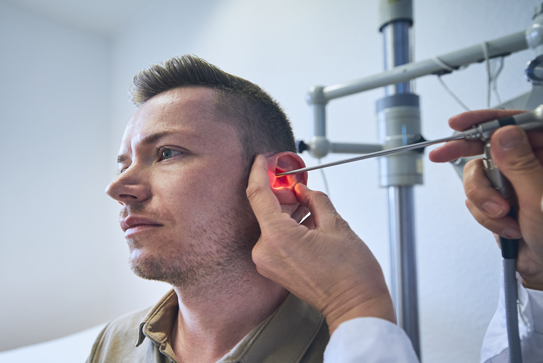According to a study by the World Health Organization, more than 1.5 billion people, or nearly 15-20% of the global population live with some degree of hearing loss. Additionally, top medical researchers and scientists estimate that 430 million people today live with near-complete or complete hearing loss, while there could be more than 700 million people with complete hearing loss by 2050.
People suffer from partial or complete due to many reasons that include but is not limited to factors such as stress, excessive exercise, medication, poor diet, untreated allergies, insomnia, chronic smoking, injury, or even diabetes and other metabolism-disturbing disorders. Our ears and sense of hearing comprise of many highly-nuanced and sensitive systems, including our body's smallest bones, fluid-filled hearing tube, hairs inside our ear, cochlea, inner ear, auditory nerves, and brain.


Pros and Cons of Cochlear Implants
Doctors diagnose and treat hearing problems or ENT doctors (Ear, Nose, and Throat doctors). Prior to any ENT procedure, ENT specialists will often fairly inform you about various treatment options such as cochlear implant surgery, the cochlear implant success rate as well as the pros and cons of cochlear implants. The pros and cons of cochlear implants include:
Pros:
- Adult patients see hearing improvement within 3 months
- Helps patients for whom hearing aids don't help
- Helps patients enjoy music, hear footsteps, and more
Cons:
- Injury to the facial nerve leading to facial paralysis
- Meningitis which causes strokes or brain death
- Infection at the site of the cochlear implant
The cochlear implant success rate is highly dependent on many interconnected factors. Here are some of the factors that an ENT specialist or surgeon has to look out for while treating a patient with hearing loss:
- Age of the patient
- Pre-existing conditions
- Lifestyle factors
- Body-Mass Index and more
- Injuries to the ear
- Medications being used
- The pros and cons of cochlear implants








